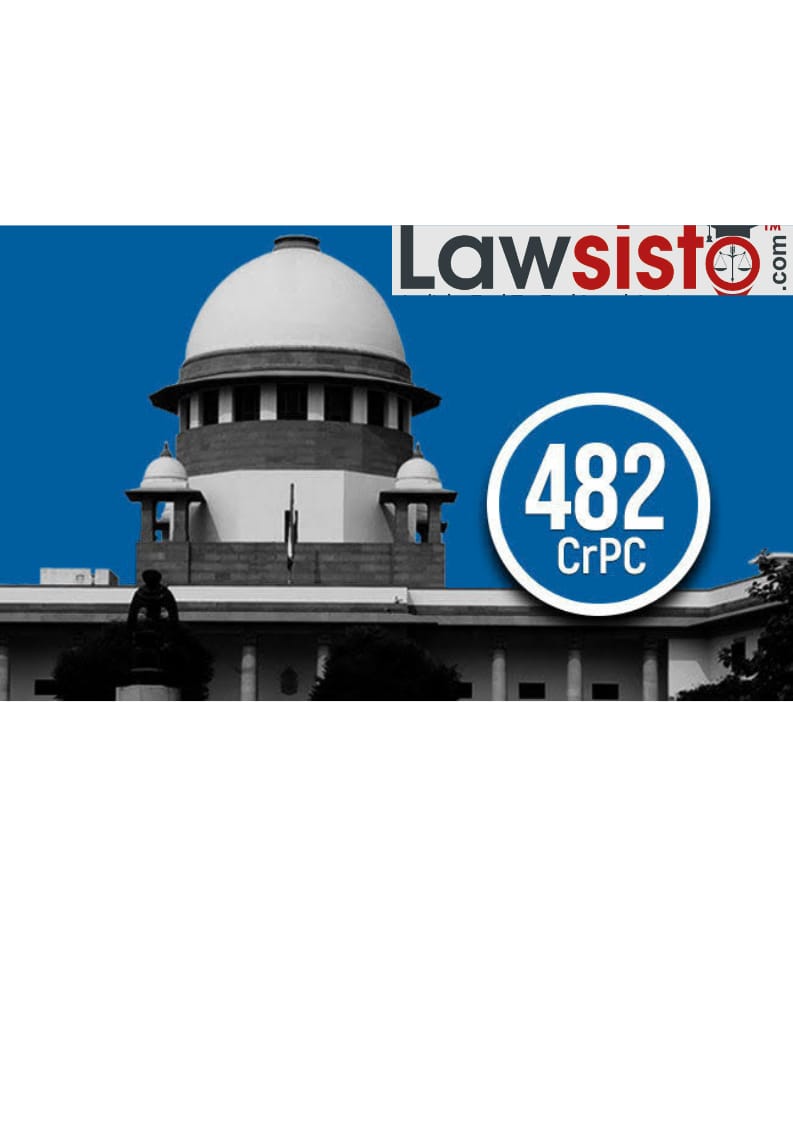Latest News
SECTION 482 CrPC

The Supreme Court on Tuesday held that High Courts while deciding applications under Section 482 of Code of Criminal Procedure (CrPC) for quashing of the case at the stage of framing of charge, should not enter into an appreciation of the evidence or consider whether on the basis of such evidence the accused is likely to be convicted or not (Saranya v. Bharathi).
a Bench of Justices DY Chandrachud and MR Shah held that HC while exercising inherent powers under Section 482 CrPC, is not conducting trial or exercise appellate jurisdiction against an order of conviction or acquittal.
It, therefore, set aside a decision of the Madras High Court which had in the exercise of Section 482 powers quashed charges against a person who was a co-accused in the murder of a Tamil Nadu man.
Therefore, in the facts and circumstances of the case, the High Court ought not to have quashed the charge sheet against the respondent, the Court held.
As per the complaint given by the wife of the deceased, her husband was unemployed at the relevant time when one Vela alias Velayutham was introduced by respondent-accused Bharathi to them. Bharathi told them that Velayutham was employed at Guindy Employment Exchange and that if they give money, he can arrange government employment for them. They believed the same and gave ?4 lakh to Velayutham. On September 23, 2019, Velayutham told them that he will get the appointment order that very day and asked the two of them to come to Vyasarpadi. As instructed, they met Velayutham at a flat in Vyasarpadi where he offered them a powder claiming it to be ‘Prasadam’ from Shirdi Sai Baba Temple. Since the powder was bitter in taste, the complainant spat it out but her husband had consumed it after which he fainted and fell down. He was rushed to the hospital but had breathed his last by then.
In the case registered based on the wife's complaint, Velayutham was made the prime accused while Bharathi, who had introduced them to Velayathum was charged for offenses under Sections 420 (assembling for purpose of committing dacoity) 302 (murder) read Section 109 (abetment of any offense) of Indian Penal Code (IPC).
The case was pending for commitment before the Metropolitan Magistrate, Egmore, Chennai when the respondent approached the High Court under Section 482 for quashing the entire charge-sheet against her.
The High Court allowed the plea leading to the present appeal before the top court by the wife of the deceased.
The Supreme Court in its judgment referred to various decisions on the issue. In this regard, specific reliance was placed on State of Madhya Pradesh v. Deepak [(2019) 13 SCC 62] in which it was held that at the stage of framing of charges, the court has to consider the material only with a view to finding out if there is a ground for “presuming” that the accused had committed the offense.
.
In the present case, there is sufficient material on record raising strong suspicion against the respondent, the top court opined.It has been found that she was serving in the Secretariat and was in touch with the deceased and the complainant as she used to go to Xerox shop owned by the deceased and she introduced accused 1 to the complainant and the deceased. It is specifically alleged that she said that she can manage to get the job/employment for the deceased but for that, they have to pay,
Further, recovery of ?1.2 lakh was made from the house of the respondent based on her own confessional statement.
Therefore, in the facts and circumstances of the case, when the respondent had been charge-sheeted for the offenses under Sections 420, 302 r/w 109 IPC and when there was ample material to show at least a prima facie case against the respondent, the High Court committed a grave error in quashing the charge sheet/entire criminal proceedings against Bharathi in the exercise of powers under Section 482, the Supreme Court concluded.
The High Court evidently ignored what emerged during the course of the investigation and entered into an appreciation of evidence, the apex court said while quashing the High Court verdict and directing the Magistrate to proceed with the case.
Document:



































































































